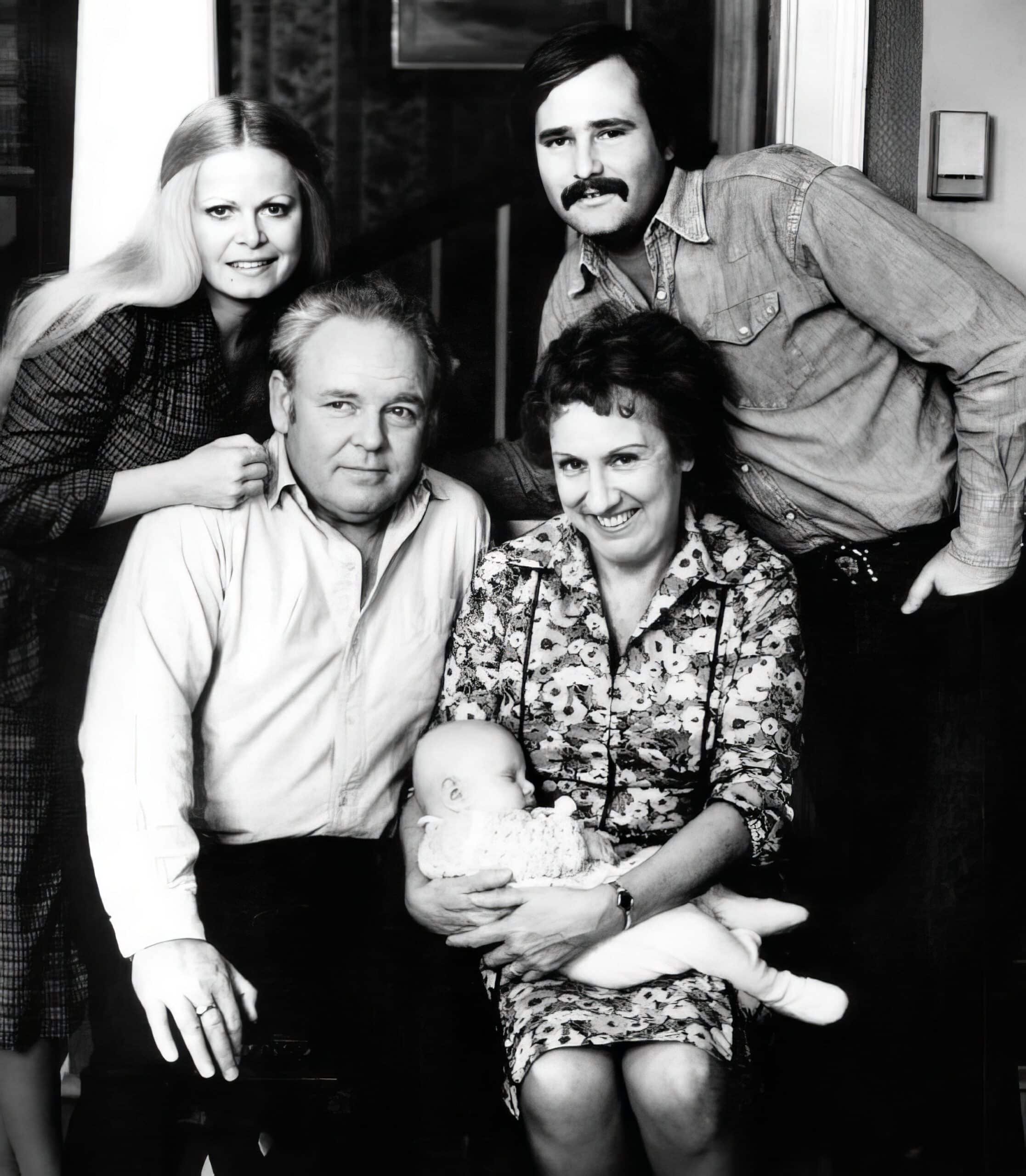
CBS aired the premiere of the iconic show “All in the Family†in 1971, revolutionizing the TV landscape with its unique method of addressing societal concerns. Under the leadership of Norman Lear, it stood out by fearlessly addressing divisive issues such as racial discrimination, sexism, and ageism. “All in the Family†distinguished itself from other programs through its boldness in tackling taboo topics, thus becoming a trailblazer in televised narrative. Its undeniable impact on viewers and critics is evident through its successful performance and numerous accolades. thereby becoming the enduring influence of “All in the Family†goes beyond its achievements, demonstrating that TV can reflect societal issues and inspire discussion and transformation.
Carroll O’Connor brought depth to Archie Bunker, a nuanced depiction of the traditional working-class society, complete with a tapestry of biased perspectives on gender, ethnicity, and more. The fictional persona, crafted by the show’s creator, Norman Lear, exhibits unparalleled authenticity and intricacy, shaped by the creator’s own traditional background and individual experiences. His father, who shared a similar ideology with Archie, greatly influenced the character, making him relatable and authentic to viewers nationwide. There was controversy surrounding how Archie was portrayed. “All in the Family†explored new television territories by using a provocative character to spark conversations about societal norms and personal beliefs.
showcasing One pivotal moment that highlighted this complexity was when Archie had an encounter with an African American individual, challenging his biased beliefs and prompting uncommon introspection and a thorough scrutiny of prejudice, which was seldom depicted in movies. The blend of comedic elements, social analysis, and profound insight in Archie Bunker’s character made him both controversial and significant in the history of television. “All in the Family†achieved more than just providing entertainment through this character.
The show “All in the Family†was groundbreaking due to its portrayal of characters named Archie and Edith Bunker, who embodied the cultural and ideological conflicts of the era. The daughter Gloria and her husband Mike Stivic, known as “Meathead†by Archie, played a key role in highlighting the generational and ideological differences. Through the characters, the show approached sensitive subjects with a blend of sophistication and comedy. The show explored interracial relationships through storylines that depicted the Bunkers confronting their prejudices. For example, when Gloria introduced a black friend to the family, it sparked uncomfortable yet enlightening conversations. Archie’s conservative views clashed with Mike’s liberal perspective, sparking heated debates about the Vietnam War, women’s liberation, and other controversial subjects.
Jean Stapleton’s portrayal of Edith Bunker brought warmth and depth to the show, playing a crucial role in addressing bigotry and intolerance. Archie’s bluster and bias stood in stark contrast to her character, which often represented reason and empathy. Edith challenges Archie’s assumptions and stands up for her beliefs in episodes centered around women’s rights and racial equality. “All in the Family†used this dynamic to address sexism and racism, showing how television can promote empathy and understanding. Edith’s character in the show represented the potential for personal growth and societal progress, contrasting Archie’s bigotry and offering hope.
Norman Lear revolutionized television with his groundbreaking approach in “All in the Family,†showcasing television’s ability to address and engage with social issues like never before. Through the portrayal of complex characters and storylines mirroring societal tensions, Lear paved the way for television to engage in social commentary and reflection. By blending comedy and drama, his work compelled both viewers and television creators to contemplate the effects of social issues like racism, sexism, and homophobia, raising the bar for storytelling that aims to impact and mirror societal conventions.
Besides “All in the Family,†Norman Lear’s influence can be seen in other influential shows such as “Maude†and “The Jeffersons.†Lear’s legacy exemplifies the power of television to provoke reflection, dialogue, and change, showcasing how impactful storytelling can entertain and inspire critical thinking.
Television has seen major transformations in its representation of prejudice and bigotry since the days of “All in the Family.â€
Conversely, present-day TV series have a contrasting approach in depicting characters with prejudiced views. Nowadays, shows are more likely to critique these characters’ prejudices directly and satirically rather than giving them a sympathetic portrayal. Satire and dark comedy are employed in series like “Fargo,†“Community,†and “South Park†to reveal and satirize the irrationality and negative impact of bigoted ideologies. This shift signifies a larger societal transformation in how prejudice is confronted and challenged, shifting from a narrative of redemption to a more confrontational and introspective examination of bigotry and its impact on society.
The impact and relevance of “All in the Family†in American culture and media persist even after its television run ended in 1979. With Norman Lear at the helm, the show fearlessly confronted the social and political challenges of its time, such as racism, war, and gender equality, with an unwavering honesty that was both thought-provoking and illuminating. By depicting Archie Bunker, a character who personified the biases and contradictions of the time, the show acted as a reflection of society, prompting viewers to examine their own beliefs and prejudices. The show’s bold narrative approach garnered critical acclaim and a devoted audience, while also redefining how television addresses social issues, making it a reference point for conversations about race, class, and media’s influence on societal norms.
“All in the Family†has left a lasting impact on writers, producers, and creators, inspiring them to use TV as a platform for social commentary. Lear’s blend of humor and social commentary has impacted popular series such as “The Wire†and “Modern Family.â€
WPRNPublicRadio.com is a Tampa, Florida based independent public radio platform to inform and entertain, bringing narratives driven by personal stories who are representative of their communities, giving voice to the voiceless and shining a light on systemic inequities and disparitiesalong with arts and culture, news, features and off-beat stories focusing on essays, arts and culture, and artistic sound portraits. Visit our website to learn more. Our aim is to tell community-based, issue-driven stories with depth and creativity.
